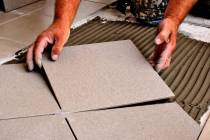Norwalk sets ‘greener’ manufacturing standards
Understanding the need for “greener” manufacturing processes in the home-furnishings industry, Norwalk Furniture Corp. has adopted standards that will compel the Ohio-based upholstery manufacturer to use natural and renewable resources, as well as recycled materials in the construction of its collections.
“We understand the need to bring products to market that not only promote health and well-being, but also conservation of the environment,” said Rick McKirahan, president. “Norwalk’s production systems not only maximize recycling efforts, but also use energy and resources sparingly.”
Among the changes are the use of 10 percent soy-based foam and reclaimed wire and steel in seating systems and natural fibers in the upholstering process.
Using between 20 and 30 trailers of foam a week, Norwalk’s product development team was in search of a “green” alternative.
“We knew that we had to replace the petroleum-based foam product we were using,” McKirahan said.
After learning about Preserve by Hickory Springs, a flexible polyurethane foam product that replaces a portion of petrochemical-based ingredients with soy beans, the company switched to the foam that is comprised of a sustainable and renewable resource.
Despite Preserve’s bio-based background, the foam delivers the same comfort, durability and support of Norwalk’s previous seating system.
“It’s the most innovative cushioning material that we’ve used since the introduction of high-resilience foam in the ’80s, and it outperforms conventional foam,” said Jeff Gross, director of product development. “More and more customers are environmentally conscious, and seeking products that are labeled as such. It’s important that they’re aware that these products also carry the same, or improved, quality.”
Another step in the company’s green journey is the use of recycled wire and steel in its state-of-the-art, eight-way fabricated soft seating system called S 3 COIL. The double-coil soft-seating system — hence the S 3 designation — is arranged so that every square inch of seating area receives the necessary (and anticipated) comfort and support. According to Gross, this is achieved using only recycled wire and steel, which helps to prevent the continued digging of new, unearthed raw materials.
Proactively green, Norwalk’s ongoing commitment also shows in its selection of construction materials.
In fabrics, for example, the company opts for natural fibers such as cotton, linen and new wool. “We’re trying to get away from petroleum-based products,” he adds, noting that no toxic substances are used in processing of natural-born fibers.
The company also leans toward hardwood laminates from faster-growing hardwoods rather than slow-growing counterparts. “It takes 40 to 60 years for forests to regenerate,” Gross said.
Other examples of earth-friendlier practices implemented include the use of 50 percent to 100 percent recycled textile goods and fiber content in such items as cotton batting and fiber wrap, and cardboard and other packaging made from 100 percent recycled materials.
Information courtesy Norwalk Furniture Corp.


















